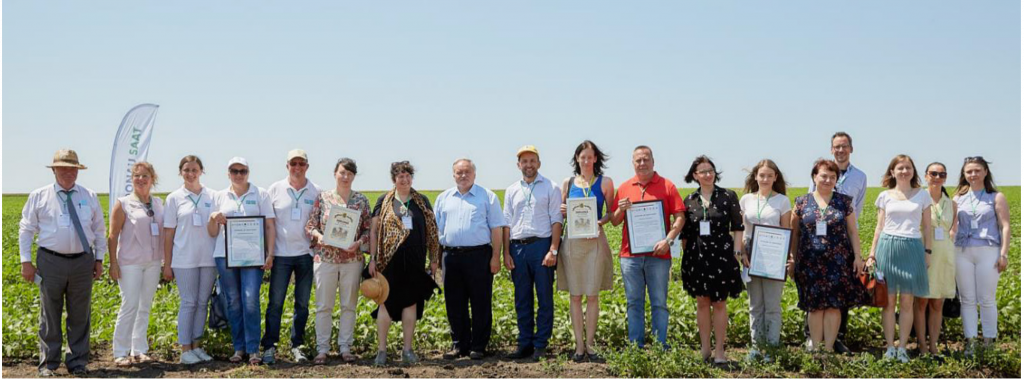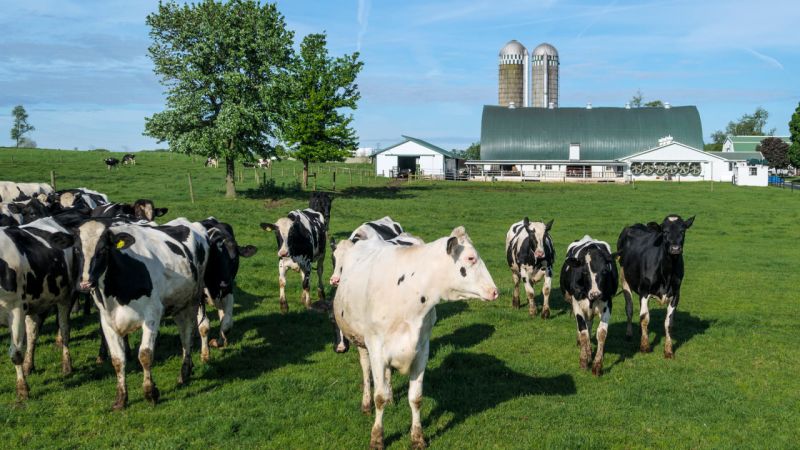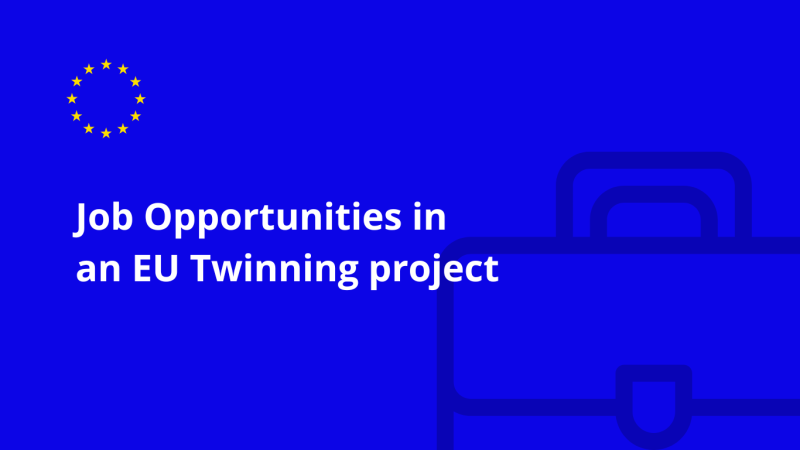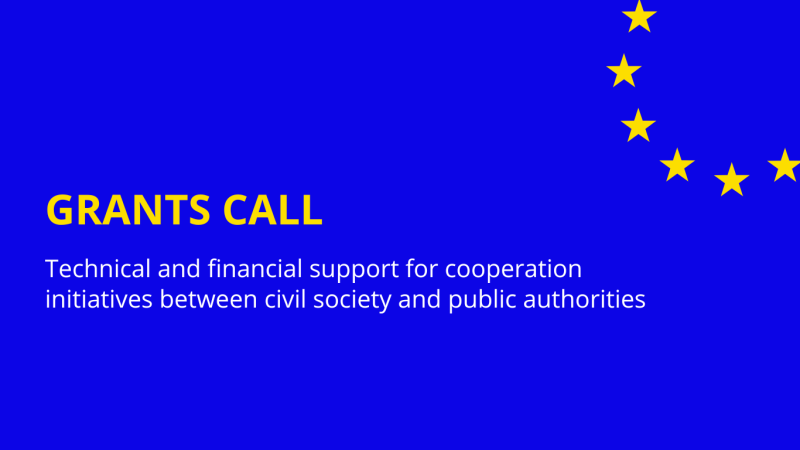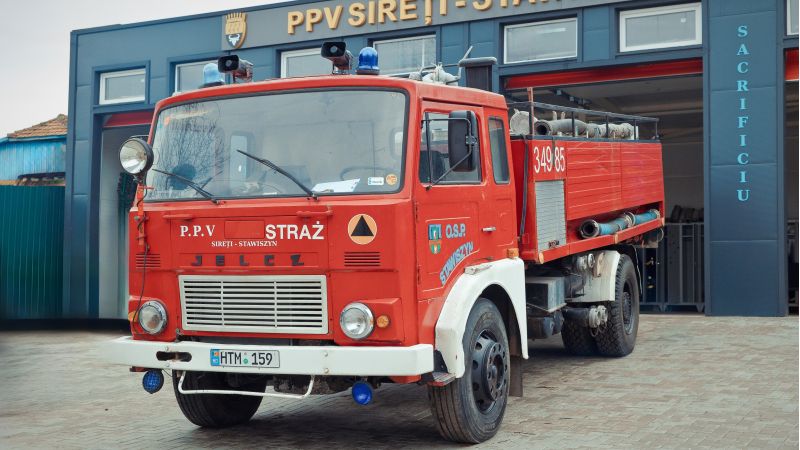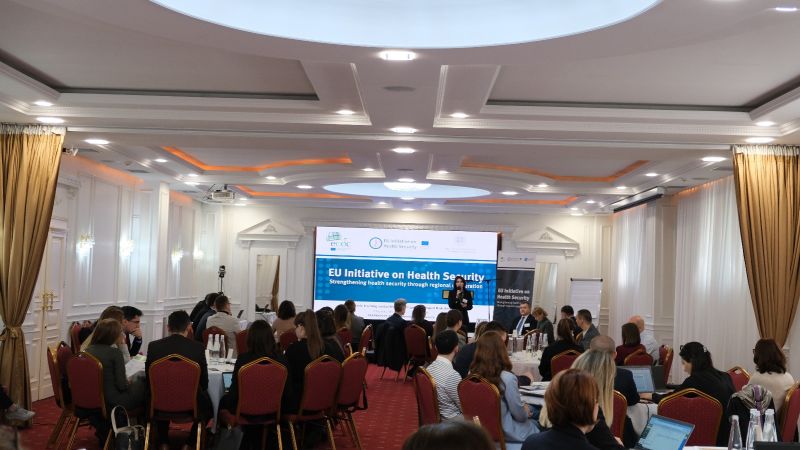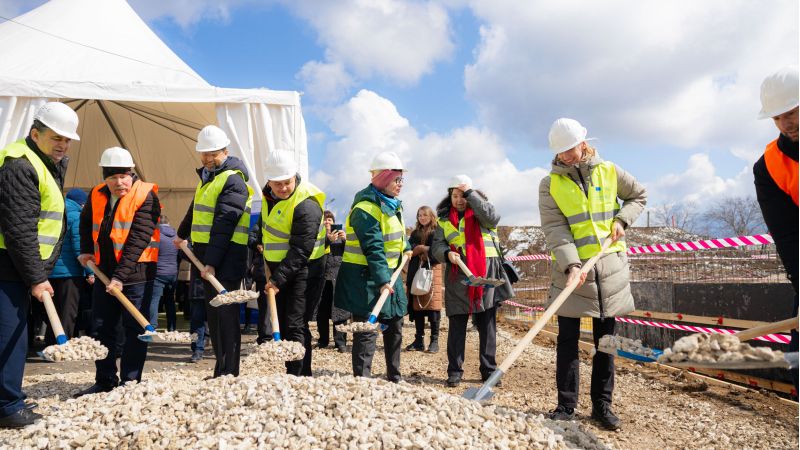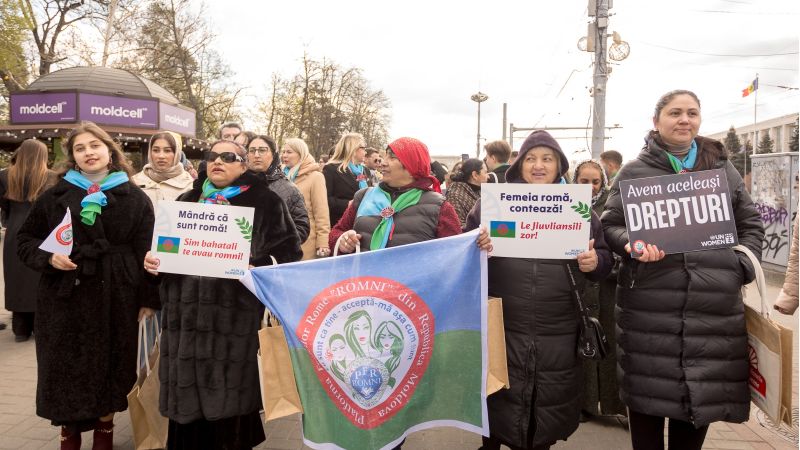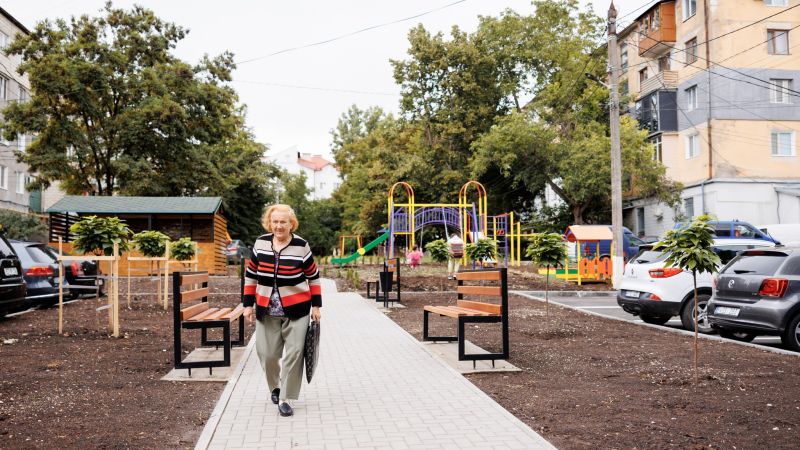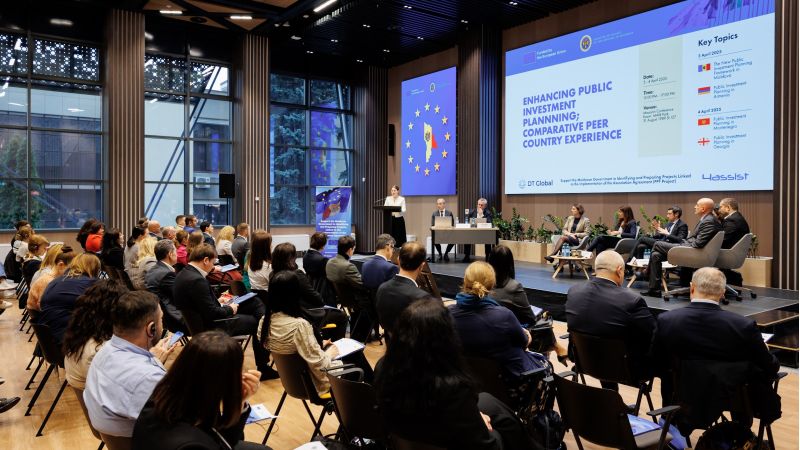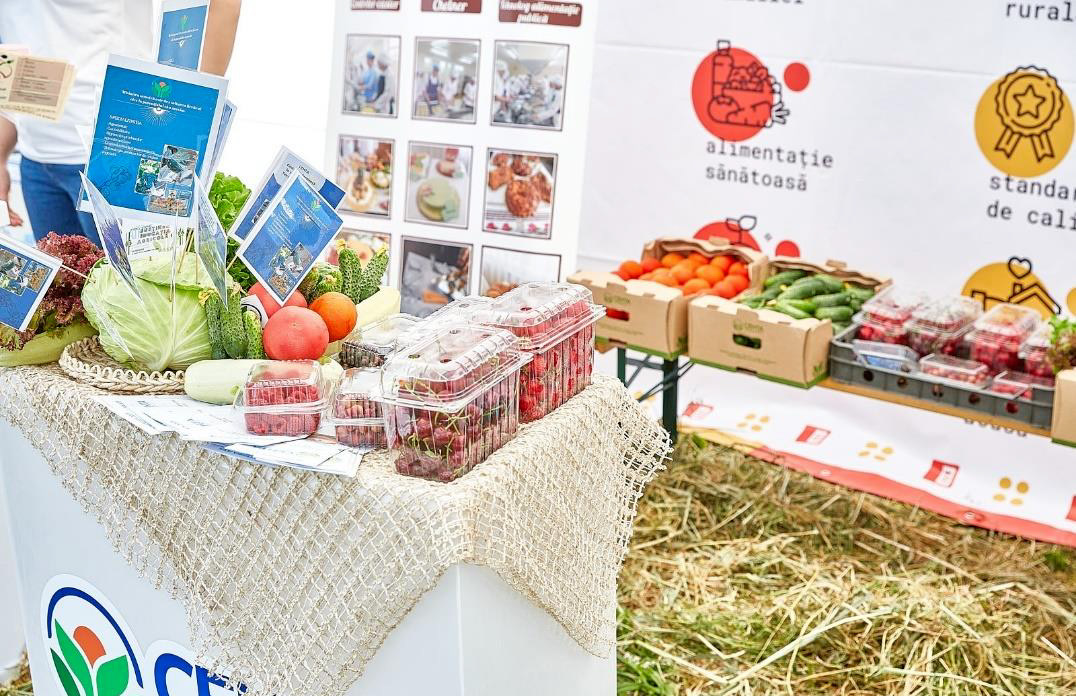
European Union supports the increase of the competitiveness of the agri-food sector through integration to domestic and global value chains, in particular in the soya sector
The PART I of the DevRAM project focuses on increasing the competitiveness of the agri-food sector through integration to domestic and global value chains, in particular in the soya sector. This can result in increased export of Moldovan soybeans and soybean products, especially the GMO-free one. Developing soy value chains means developing good farming and food systems that bring wider economic, environmental and social benefits. The European Union finances the project with about 3 million EUR.
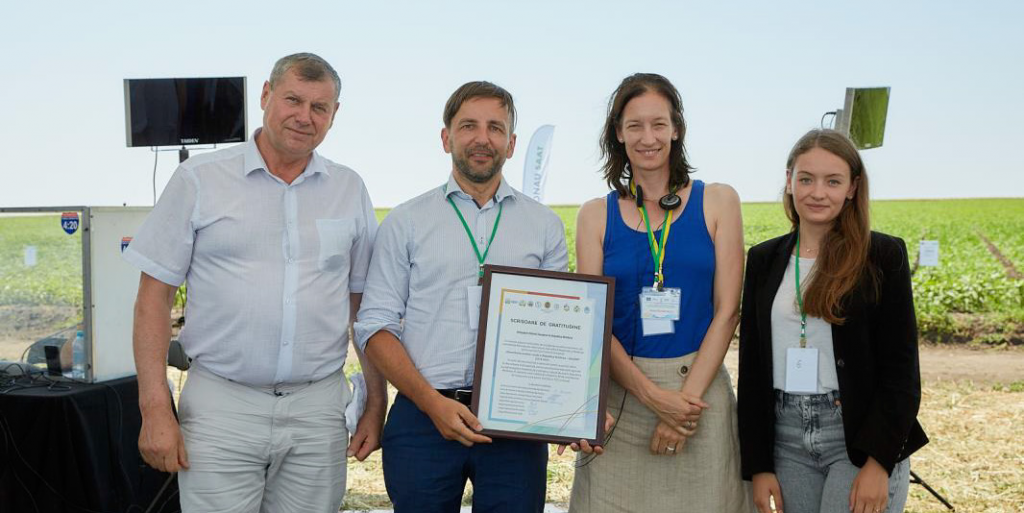
On 30 June 2021, the EU funded project “DevRAM Part I – Increasing the competitiveness of the agri-food sector through integration to domestic and global value chains, in particular in the soya sector” held its closing event. The project, funded by the European Union, was implemented during April 2018 – August 2021 by the Austrian Development Agency (ADA), with the consortium partners Donau Soja Association from Austria and Pro Didactica Educational Center, in cooperation with the Ministry of Agriculture, Regional Development and Environment and the Ministry of Education, Culture and Research of the Republic of Moldova.
A broad overview of the main activities, achievements and impacts of the project were presented during the closing event. Stakeholders and beneficiaries shared their experiences and lessons learned, the implications for their future activities, opportunities for cooperation and matchmaking between stakeholders thereby the project sustainability. The event, organised on the soya demonstration field of the Research Institute of Field Crops “Selectia” from Bălţi, was attended by representatives of the Delegation of the European Union to the Republic of Moldova, the Austrian Embassy in the Republic of Moldova and the Austrian Development Agency, the Ministry of Agriculture, Regional Development and Environment, the Ministry of Education, Culture and Sport, Research Institutes, the Ministry of Health, Labour and Social Protection, soya value chain actors, agri-food VET schools, development partners, etc.
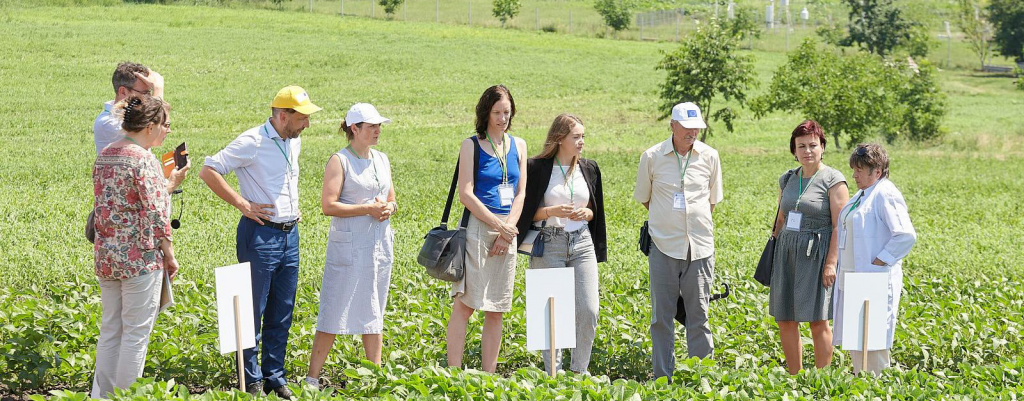
In the last three and a half years, with the support of European Union via the DevRAM Part I project, Research institutions in the Republic of Moldova participated in 8 international R&D or AKIS events and benefited from modern equipment, enhancing their capacities to supply the market with new soya cultivars and more efficient production techniques. Altogether, 13 soya producers in the Republic of Moldova and one trader (Prograin Organic Moldova) were certified according to the Donau Soya Standard; while and one soya processing company in the Republic of Moldova (Angromix77) was certified according to the standard “Non-GMO produced” making the first local certified soya products available to local consumers. In addition, the Republic of Moldova has managed to access a new European market destination, by exporting organic soya to Spain.
The biosafety regulatory framework in the Republic of Moldova was assessed and the National Action Plan for the Development of Soya Production was developed and
ntegrated into the National Agriculture Development Strategy. Agricultural R&D institutions in Moldova signed three cooperation agreements with their counterparts from Bulgaria, Serbia and Romania. The project activities also resulted in 19 soya demo fields being organised and 3 study visits for Moldovan producers. 30 best practices dissemination events and 12 public workshops for farmers, producers and policy makers were organised, over 738 people trained, about 4,000 kg of soya donated and two manuals on soya cultivation published. It should also be mentioned that five companies and research institutes received new equipment. Farmers, researchers, line Ministries and VET schools attended national and international exhibitions, fairs and study visits.
The agricultural technical vocational education institutions strengthened their organisational capacity, trained the managers and teachers to be better prepared to respond to the market needs and liaising schools with the business community.
At the same time, 7 VET institutions were direct beneficiaries of the project, with extended impact on all agri-food 12 VET schools across the Republic of Moldova. The following main results can be listed: elaboration and validation of 8 occupational standards and 8 qualification standards, of the curricula “Quality standards in the agri-food field” and “Organic agriculture”; about 600 participations of managerial and teaching staff in continuous training programs; endowment with equipment of 2 continuous training sections (the Centre of Excellence in Horticulture and Agricultural Technologies from Țaul and the Centre of Excellence in Viticulture and Vinification from Stăuceni) and of 7 practical training rooms; developing and launching adult continuing education programs; creation of 7 virtual tours and 11 web pages of agri-food VET institutions; trained 51 young farmers in business plan development and granted 5 business start-ups; participation of over 200 students and teachers in national and international exhibitions, etc.
